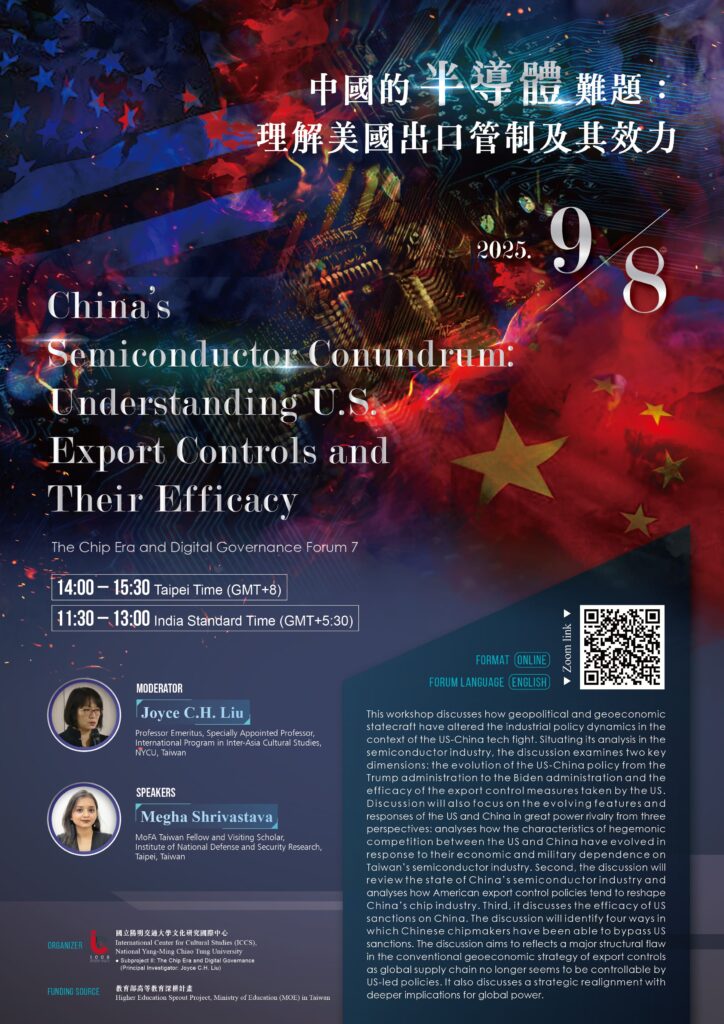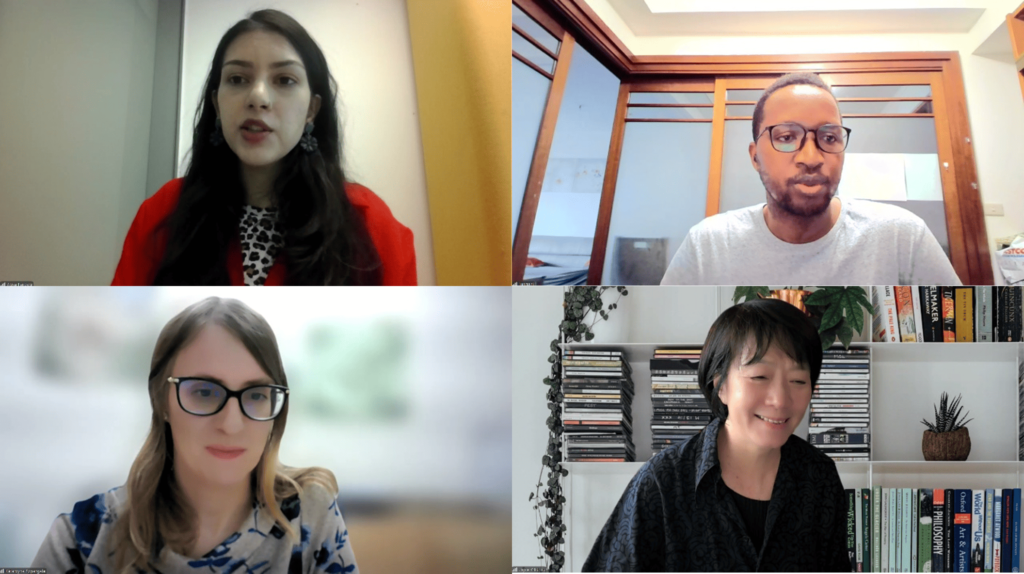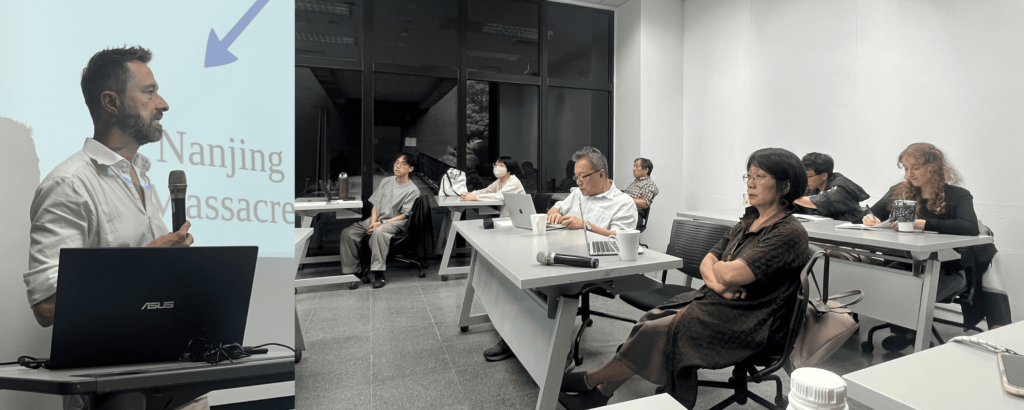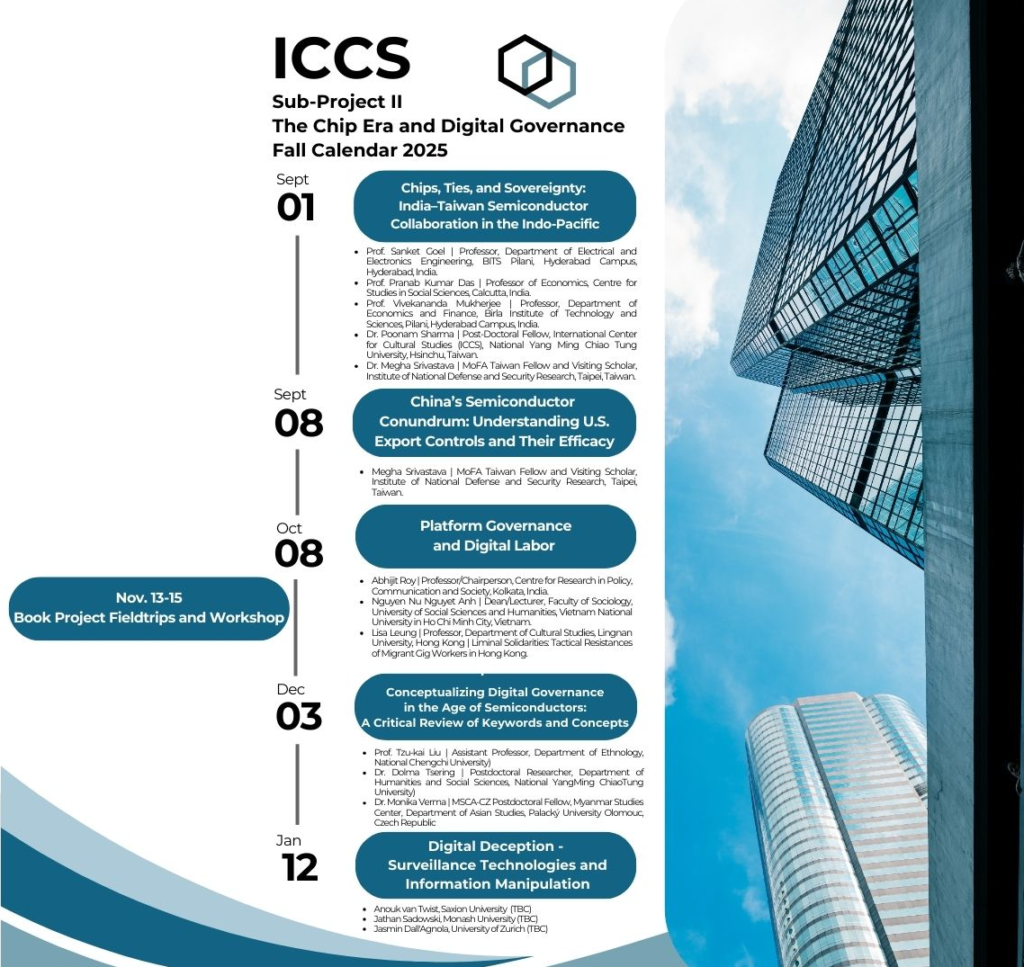
September | China’s Semiconductor Conundrum: Understanding U.S. Export Controls and Their Efficacy
中國的半導體難題:理解美國出口管制及其效力
📌Date and Time: September 1, 2025, 14:00–16:00 Taipei Time (GMT+8); 11:30–13:30 India Standard Time (GMT+5:30)
📌Format: Online
📌Zoom Link: https://us02web.zoom.us/j/83188972256?pwd=AK1Lv61lU7fb6ioLAjWJeJ6rkqb4rs.1
📌Forum Language: English
Synopsis
This workshop discusses how geopolitical and geoeconomic statecraft have altered the industrial policy dynamics in the context of the US-China tech fight. Situating its analysis in the semiconductor industry, the discussion examines two key dimensions: the evolution of the US-China policy from the Trump administration to the Biden administration and the efficacy of the export control measures taken by the US. Discussion will also focus on the evolving features and responses of the US and China in great power rivalry from three perspectives: analyzing how the characteristics of hegemonic competition between the US and China have evolved in response to their economic and military dependence on Taiwan’s semiconductor industry. Second, the discussion will review the state of China’s semiconductor industry and analyze how American export control policies tend to reshape China’s chip industry. Third, it discusses the efficacy of US sanctions on China. The discussion will identify four ways in which Chinese chipmakers have been able to bypass US sanctions. The discussion aims to reflect a major structural flaw in the conventional geoeconomic strategy of export controls, as the global supply chain no longer seems to be controllable by US-led policies. It also discusses a strategic realignment with deeper implications for global power.
Moderator
💭Joyce C.H. Liu
Professor Emeritus, Specially Appointed Professor,
International Program in Inter-Asia Cultural Studies, NYCU, Taiwan
Speakers
💭Megha Shrivastava
MoFA Taiwan Fellow and Visiting Scholar,
Institute of National Defense and Security Research, Taipei, Taiwan.
Organizer
國立陽明交通大學文化研究國際中心 International Center for Cultural Studies (ICCS), National Yang-Ming Chiao Tung University
- Subproject II: The Chip Era and Digital Governance (Principal Investigator: Joyce C.H. Liu)
Funding Source
教育部高等教育深耕計畫
Higher Education Sprout Project, Ministry of Education (MOE) in Taiwan






